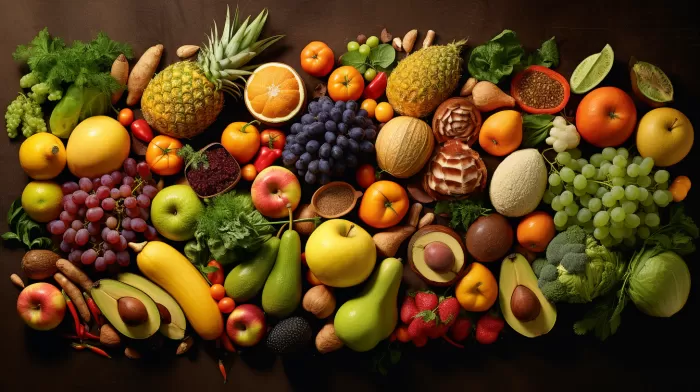If you’re looking to lose weight, it can be tough finding a suitable diet among the countless options available. Yet many of these diets often lead to unhealthy lifestyles that keep us overweight. The truth is, for weight loss to be healthy, your diet must encompass all that nature offers. Here are a few simple strategies to help you slim down while ensuring optimal health, energy, and improved quality of life.
Understanding Food as Fuel
At the most basic level, food is fuel. It provides our bodies with the much-needed energy to function properly. Eating a higher-quality diet can significantly improve your overall health and well-being.
In the East, food is seen as the key to health and the prevention of illness. However, in the United States, we often think of food as mainly being a source of pleasure, social gathering, and weight management. This can lead to an unhealthy relationship with food and set us up for a cycle of overeating and attempting to lose weight with unbalanced diets.
The Unhealthy Attitude
Thinking of food as the enemy when trying to lose weight is an unhealthy approach. You can’t maintain a healthy lifestyle while restricting essential nutrients such as carbohydrates, protein, fruits, and vegetables. Instead of focusing on reducing calories or avoiding specific types of food, adopt a healthier view of food and its role in your life.
Here are five tips to help you eat for weight loss:
- Stop viewing each food in terms of its nutritional components such as caloric content, fat, protein, and carbohydrates. This only tells a small part of the story and adds to confusion and stress.
- Start looking at food as whole items and how they interact with each other, especially when consumed.
- It’s more important to understand how your body processes food, how quickly it breaks down into sugar, and how fast it moves through your digestive system, than the individual nutritional components of food.
- Focus on eating for optimal health, energy, and improved quality of life instead of simply trying to lose weight. Your weight will adjust naturally based on your body’s needs.
- Being skinny or thin doesn’t necessarily equate to being healthy. Aim to maintain a healthy weight while nourishing your body with nutrient-dense foods.
Healthful Eating
To embark on a healthier eating journey, it’s essential to understand how carbohydrates, fats, and other key nutrients affect your body. Here are a few essential points about these nutrients:
Carbohydrates: Carbohydrates are your brain’s fuel. Avoiding carbohydrates decreases your cognitive functioning, which is not a trade-off you want to make when trying to lose weight. Opt for complex carbohydrates from whole grains, fruits, and vegetables. These take longer to break down, preventing insulin spikes and reducing sugar cravings.
Fats: Fats don’t inherently cause weight gain, but overeating fatty foods can lead to this. Some fatty foods, such as bacon, lose a significant amount of fat during the cooking process. Furthermore, eating high-fat foods like sour cream and butter with simple carbohydrates can slow down digestion and prevent blood sugar spikes, making them less likely to contribute to weight gain.
Eating Healthfully
Ultimately, the key to healthy eating and weight loss is twofold: consume high-quality, whole foods and manage your glycemic load. The glycemic load refers to how quickly or slowly your body breaks down food, converts it to sugar, and either uses it for fuel or stores it as fat.
By eating whole foods, you’ll break down the nutrients slowly and manage your blood sugar levels more efficiently. This approach can help you achieve a healthy weight and prevent health issues such as type 2 diabetes, metabolic syndrome, and insulin resistance syndrome.
If you treat food as fuel and focus on eating for health instead of solely for weight loss, you can achieve a balanced weight by making healthier food choices that don’t trigger excessive insulin release. Remember, the key to sustainable weight loss is leading a healthy, balanced lifestyle, underpinned by a strong understanding of the role food plays in our lives.



